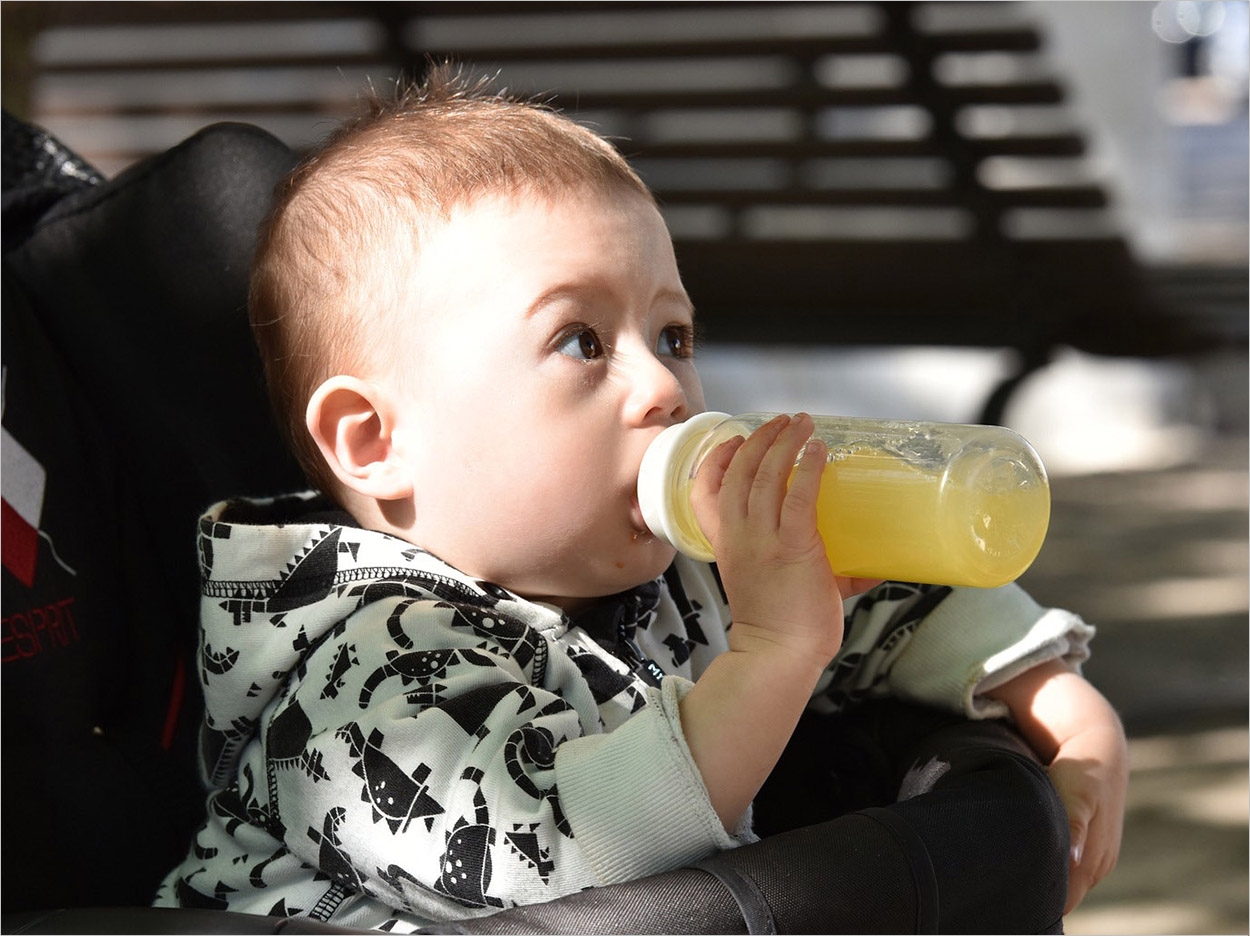
Citing concerns about obesity and dental health, the American Academy of Pediatrics (AAP) advises parents that fruit juice offers no nutritional benefit to children who are younger than a year old and should not be included in their diet. Previously, the AAP advised against giving fruit juice to children under the age of 6 months, but has now expanded that timeframe.
“Parents may perceive fruit juice as healthy, but it is not a good substitute for fresh fruit and just packs in more sugar and calories,” said Melvin B. Heyman, MD, and co-author of the AAP’s statement. “Small amounts in moderation are fine for older kids but are absolutely unnecessary for children under one.”
The AAP reports that dental caries is the most common chronic childhood disease, with 24% of those aged 2 to 4 years, 53% of those age 6 to 8 years, and 56% of 15-year-olds having caries experience. Also, children from poor and racial or ethnic minority families have higher rates of untreated dental caries than their peers from nonpoor and nonminority families.
The new recommendations state that 100% fresh or reconstituted fruit juice can be a health part of the diets of children who are older than one year old when consumed as part of a well-balanced diet. But consumption, the AAP notes, should be limited depending on the child’s age. The AAP’s policy statement also recommends the following:
- Juice intake should be limited to 4 ounces daily for toddlers aged one to 3 years old; 4 to 6 ounces daily for children aged 4 to 6 years old; and 8 ounces or one cup of the recommended 2 to 2.5 cups of fruit servings per day for children aged 7 to 18 years old.
- Toddlers should not be given juice from bottles or “sippy cups” that let them consume juice throughout the day since the excessive exposure of the teeth to carbohydrates can lead to tooth decay. Similarly, toddlers should not be given juice at bedtime.
- Children should be encouraged to eat whole fruits and be educated about the benefits of the fruit compared to juice, which lacks dietary fiber and may contribute to excessive weight gain.
- Human milk or infant formula is sufficient for infants, and low-fat or nonfat milk and water are sufficient for older children.
- The consumption of unpasteurized juice products should be strongly discouraged for children of all ages.
- Children who take specific forms of medication should not be given grapefruit juice, which can interfere with the medication’s effectiveness. Also, fruit juice is not appropriate in the treatment of dehydration or management of diarrhea.
Overall, the AAP recommends oral health risk assessments during well-child visits starting at 6 months of age and periodic fluoride varnish application from the time the first tooth erupts through 5 years of age. Also, the AAP recommends referral to a dentist as early as 6 months of age to establish a dental home. And, parents, should brush their children’s teeth with fluoride toothpaste as soon as they see the first tooth erupt.
“We know that excessive fruit juice can lead to excessive weight gain and tooth decay,” said Steven A. Abrams, MD, co-author of the statement. “Pediatricians have a lot of information to share with families on how to provide the proper balance of fresh fruit within their child’s diet.”
The statement, “Fruit Juice in Infants, Children, and Adolescents: Current Recommendations,” was published by Pediatrics.
Related Articles
Oral Hygiene Myths Continue to Persist
Sugary Beverages Continue to Dominate American Diets
Baby Teethers Still Contain Toxic Materials


